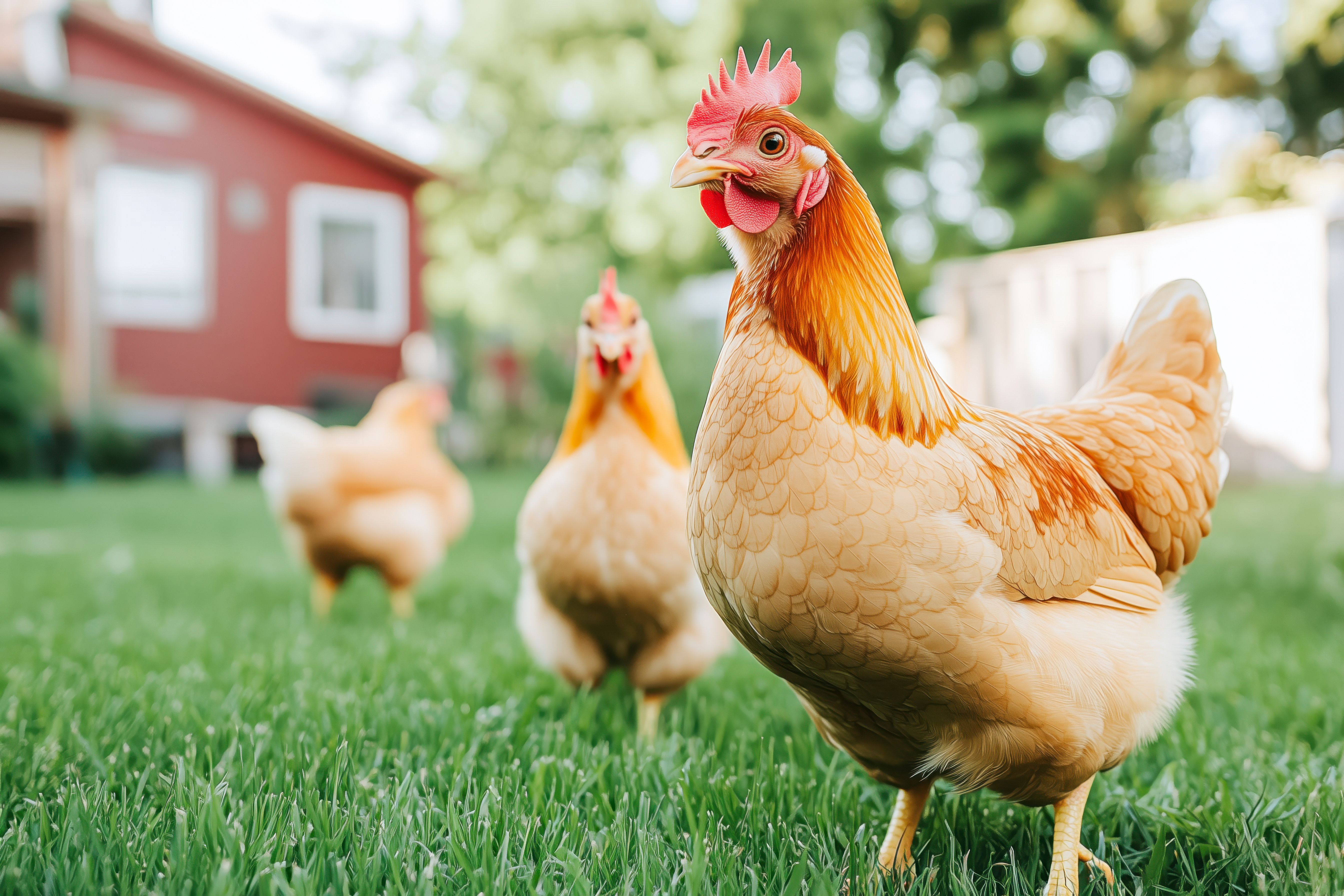10 Backyard Chicken Basics
Source: Jacquie Jacob, Extension Poultry Project Manager
Having a small chicken flock in the backyard is very popular these days. To have a successful flock producing eggs for your family, you’ll want to learn the basics.
1. Make sure you check your local city and county ordinances to ensure you’re able to have a backyard flock. Some ordinances require a minimum amount of land and some subdivisions and homeowners’ associations have their own rules.
2. Chickens require daily care. You must feed them, provide clean water and collect eggs every single day. Managing a small flock is an excellent opportunity to teach children a certain amount of responsibility, but ultimately, you’ll oversee the health and well-being of your flock.
3. Birds get sick and it may be difficult to find a veterinarian to provide care for them.
4. Cleanliness and sanitation are critical elements in caring for a small flock. Everyone must wash their hands before and after handling the birds. Also, no matter how tempting, avoid bringing your chickens into the house and don’t use your kitchen sink to wash equipment.
5. Poop happens. Chickens eat a lot and hens use about 60% of the feed they consume and excrete the other 40% as manure. You must have a plan for that manure. One option is adding it as an odor-free fertilizer for your home garden.
6. Keep it down. Chickens make noise. Only roosters crow, however, hens are not always quiet and can make a lot of noise letting everyone know they just laid an egg.
7. The egg season will come to an end. Chickens stop producing eggs at some point in their lives and may live a long time beyond their egg-laying years. Have a plan for what you will do with hens that stop producing. If you keep them as pets, you’ll have to keep feeding them and providing other resources for their care.
8. Housing is a big part of keeping a flock. Your birds will need a house that provides shelter from the weather, next boxes for egg laying and perches for roosting at night. Make sure housing is easy to clean and provides protection from predators. You’ll have to manage their bedding well to prevent rodents from making your chickens’ house their home.
9. Scratch that. Chickens scratch when they forage. If you let hens run free, you may need to place a fence around your garden if you don’t want the birds to destroy it.
10. Know how to get chicks. You will most likely want to raise your hens from chicks. You can buy them online and have them shipped to your home, but some suppliers have minimum quantities for orders. You may have neighbors or friends who also raise chickens willing to join you in an order. Remember you’ll need to provide new chicks with a heat source, such as a lamp, for at least six weeks.
For more information, take a listen to Small And Backyard Poultry webinars:
https://poultry.extension.org/webinars/


